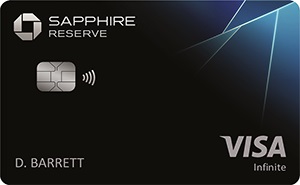
Credit card issuers nowadays have something called Purchase Protection Policies. The benefit covers damage and theft which occur within the first few months after the purchase, typically with a maximum benefit of $1,000. This insurance is automatically built-in and doesn’t need any special signup. The details of this Purchase Protection vary by the card issuer.
While most cards only cover damage and theft claims, Chase cards also haveLoss Protection as well in the event you lose the item. Amex Platinum, Delta Reserve, PRG, and Gold offer this as well.
Coverage
Here’s a small compiled list of card issuers that offer purchase protection.
American Express
Here is the amount that American Express covers and the amount of time you have to file the claim.
- Max $1,000 per claim
- $50,000 per year
- Coverage is for theft of damage that occur within 90 days. (120 days beginning on August 1, 2018.)
You can file a claim here or call 1-800-322-1277. Must be within 30 days.
Chase
Here is the amount that Chase covers and the amount of time you have to file the claim.
- Max $1,000 per claim
- $50,000 per year
- Coverage is for theft of damage that occur within 120 days.
You can file a claim here or call 1-888-320-9961. Must be within 90 days.
Citi
Here is the amount that Citi covers and the amount of time you have to file the claim.
- Max $1,000 per claim
- $50,000 per year
- Coverage is for theft of damage that occur within 120 days.
You can file a claim here or call 1-866-918-4670. Must be within 180 days.
Discover
Unfortunately, Discover no longer offers purchase protection starting February 28, 2018.
Premium Card Benefits
Most cards have a maximum Purchase Protection benefit of $1,000 per claim and $50,000 per year. However, a few premium cards offer a higher limit of $10,000 per claim. This includes the Chase Sapphire Reserve, Citi Prestige, Amex Platinum cards, Delta Reserve, Premier Rewards Gold, Gold Card, Ameriprise Gold and Fidelity Gold.
Exclusions
Here’s a small compiled list of possible exclusions:
- animals and live plants
- cash equivalents, rare coins or stamps
- tickets
- consumables like food and medicine
- motor vehicles
- medical equipment
- products purchased for resale
- damage caused by war or natural disaster
- items which weren’t reasonably safeguarded
- services purchased
Conclusion
It’s always good to understand what coverage your card issuer offers. In the event of an accident, it’s possible to get your money back. Be sure to go over all the details that your issuer provides to get a full understanding of what coverage they provide.
If you’re interested in getting a new credit card and taking advantage of their bonuses, be sure to check out our compiled list of the best credit card bonuses available!
 The Chase Sapphire Reserve offers 125,000 bonus points after you spend $6,000 in purchases in the first 3 months from account opening. You'll earn • 8x points on all purchases through Chase Travel, including The Edit • 4x points on flights booked direct • 4x points on hotels booked direct • 3x points on dining worldwide • 1x points on all other purchases This card does carry a $795 annual fee and there are no foreign transaction fees. However, you're able to earn a $300 Annual Travel Credit as reimbursement for travel purchases charged to your card each account anniversary year & up to $120 application fee credit for Global Entry or TSA Pre✓®, and more annual value from perks and benefits. Member FDIC |

